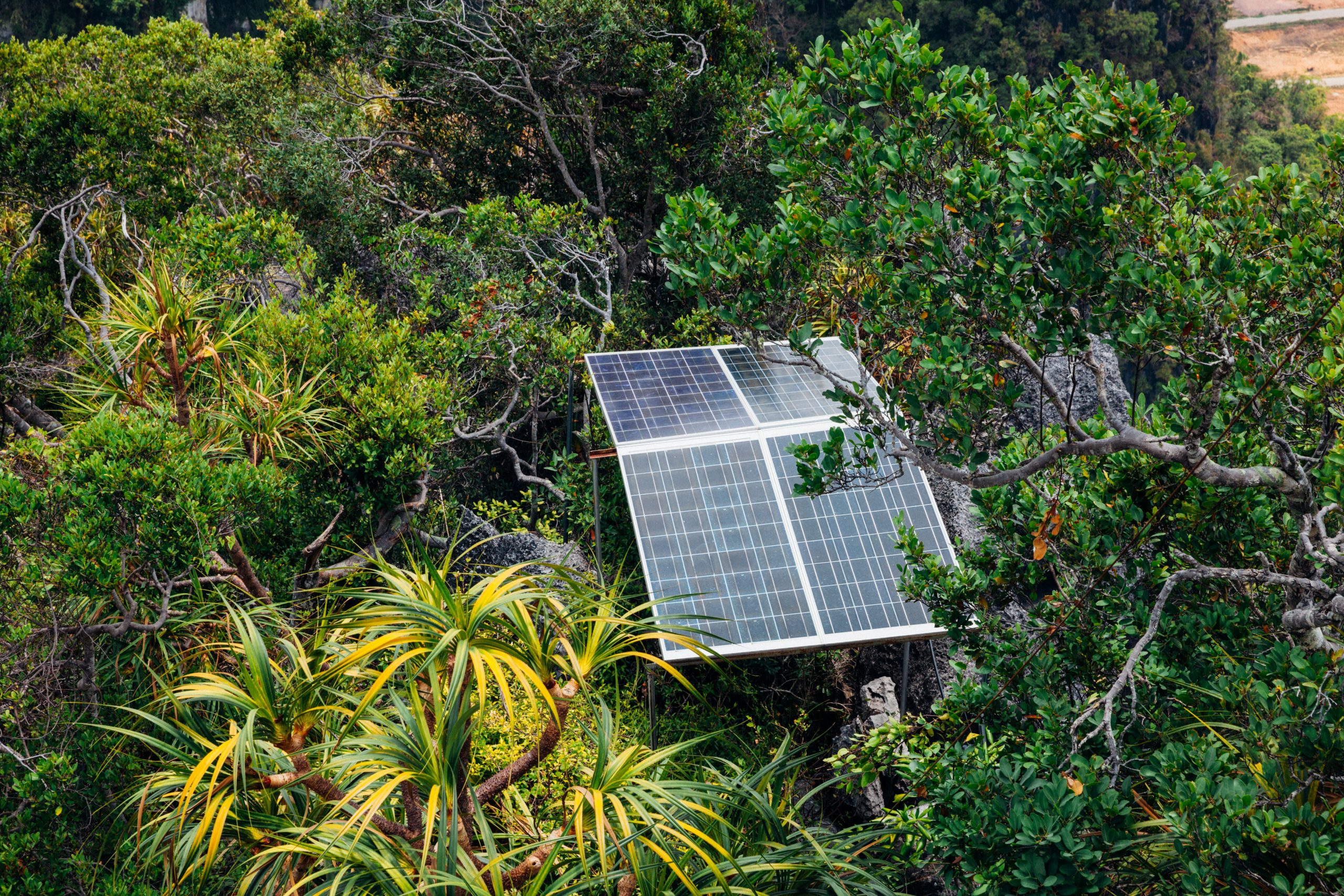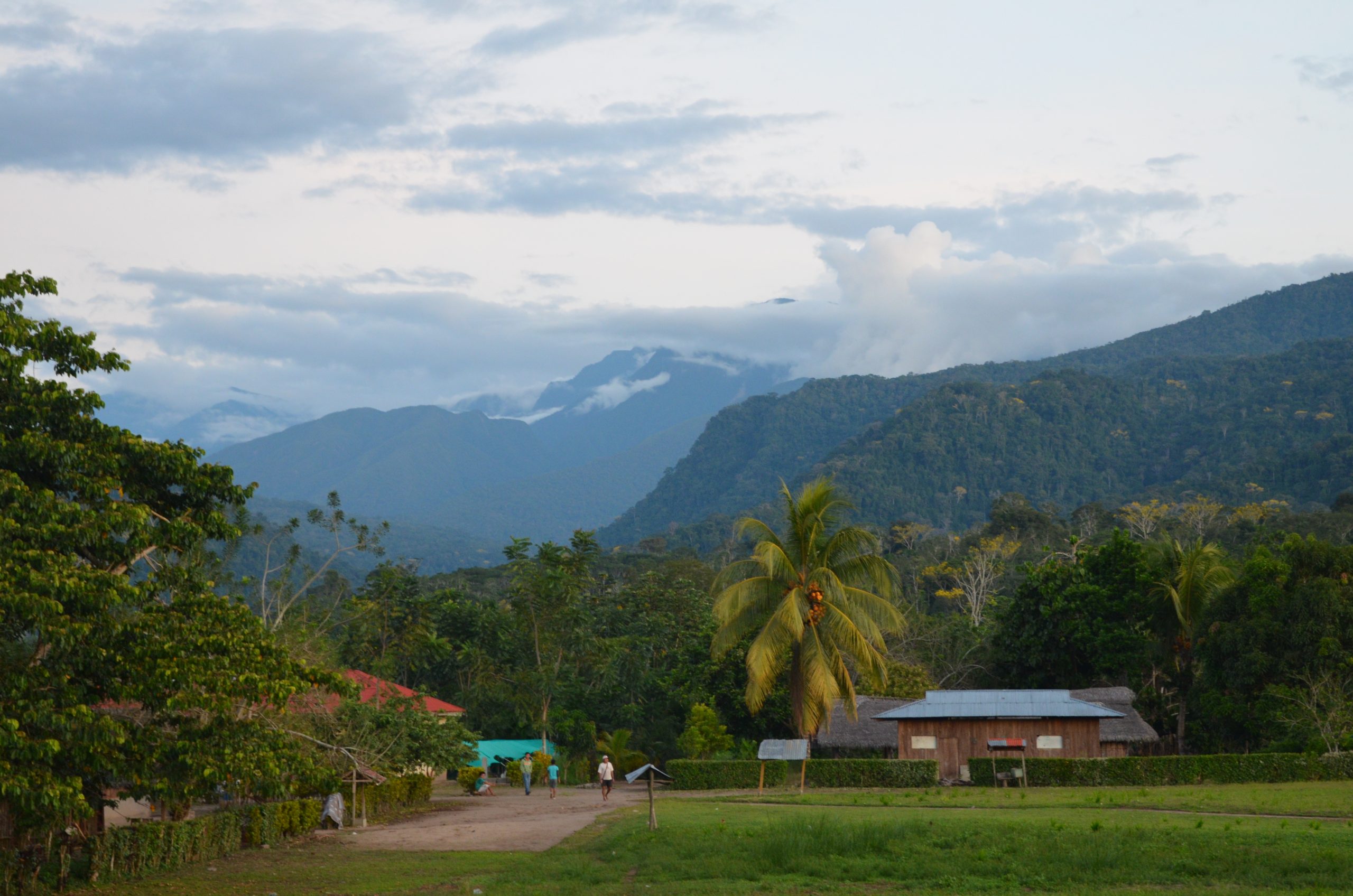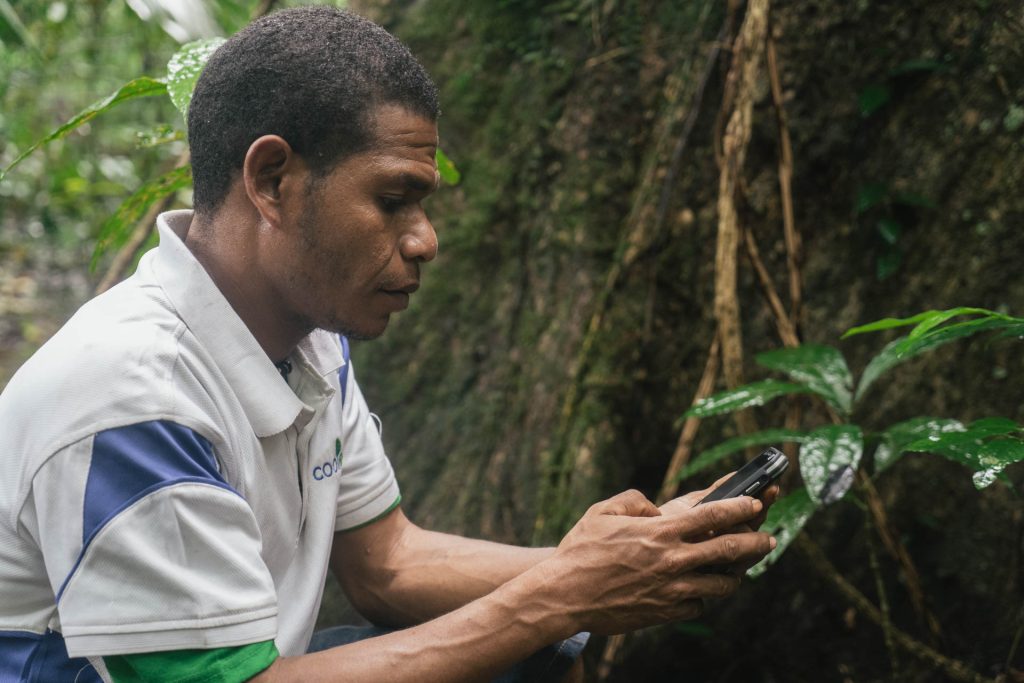Rainforest Labs: the lowdown
Satellite-aided, Indigenous-led climate action.

A Rainforest Lab recap
Rainforest Labs puts land-use data into the hands of the Indigenous villages that need it most. Data access alone, however, sells this project short. Satellite data in Indigenous communities’ hands gives them control over their lives, their land, and the future of their rainforests.
The nuts, bolts and pixels
Your support has funded tools and infrastructure for people to get real-time data from their rainforest, training to identify threats, and support to interpret data to drive climate action. Think wifi access, digital devices, electricity and a base of operations for starters.


Solar panels in rainforest.
365 days of Asháninka space, tech and data exploration
12 months is a small amount of time to make big things happen but here we are, and big things have happened. Rainforest Labs is live in the Peruvian rainforest in Oviri, fully staffed and operational.
The greatest success is hitting the deadline for launch against all odds. Trust us when we say, it doesn’t always run this smoothly. Coordinating building work, internet access, training, and employment plus securing the cash to fund it all has been made possible because of you and the tenacity of the Asháninka people of Oviri.


Peruvian rainforest in Oviri.
Team Rainforest Lab grows
The team has grown in size and capacity too. We have Jessica Aldana, a digital mapping expert fresh from the Peruvian Ministry of Culture, who acts as our Project Coordinator in Peru. She works alongside two other staff members, Jose Morales and Lionel Ramos. Their work supports those in the community who run, research and report on the Rainforest Lab. Because of our team’s skills and stewardship, computer literacy and confidence are growing, two essential qualities needed for 21st-century climate action.
“This project contributes to reducing the gap in accessing information and provides Indigenous peoples with tools and technology which, together with their ancestral knowledge, allow them to decide how best to manage and defend their Amazonian territories.”
– Jessica Aldana, Forest Impacts Coordinator.
In October 2022 Jessica visited the field to work with the Asháninka Rainforest Lab Monitors to support the design of new plans for this year. She also met with a range of NGOs running similar projects to learn and share knowledge. This has kickstarted relationships that will undoubtedly strengthen Rainforest Labs and benefit other projects throughout our communities globally.
It pays to talk, and many NGOs and donors want to. They want to talk about shifting power to Indigenous people and utilising cutting-edge technology to do so.
Lab leaps in 2023
Word has spread about our Rainforest Labs project and as word has spread, more communities are asking for labs of their own within our long-term partnerships and beyond.
How could it not be a useful tool? Rainforest communities want control back over their homes and lands and we will do whatever we can to make sure control is given back to people living in rainforest, in the form of Rainforest Labs or any of our other people-first projects. Answering community needs helps fight the climate crisis.
Rainforest Labs continued to expand throughout 2023. Action you can continue to fund and bring to life.


Biodiversity officer, Nicky Roma, collecting image and location data to cross-reference with satellite monitoring.
Four things you can expect in 2023
🔨 A new Rainforest Lab will be created in Northern Peru at the request of Huaracayo, an Awajún community we’ve been working with since 2013. The technician and coordinator team will grow further with more community members trained.
🔨 A Rainforest Lab will be created in Wabumari, Papua New Guinea with Research & Forest Monitoring Coordinator Clifford Yaee heading the project. We are installing a signal tower at the cost of £30,000 which will not only make satellite tracking and alerts possible but create opportunities for residents in a 50km area to connect to the internet. The foundations for the new building are already laid.
“We’re really excited about launching a Rainforest Lab project in PNG this year. We’ve heard many great things about what’s happening in Peru and really want to see how it might work for us. There’s a long road ahead, though, addressing quite a few challenges such as youth expectations and training to participate in the project, infrastructure development and accessibility (signal is limited in PNG) as well as security to ensure all the tech and project assets are well protected. But these are normal and we’re used to it. We will make it happen! ”
– Clifford Yaee, Research & Forest Monitoring Coordinator.
🛰️ The shift of operations to be controlled in-country and in-community will continue. Training will create a higher level of ownership for people in rainforest and autonomy to act in the ways they see fit. Decision-making will happen much closer to the root of the problem meaning faster responses and preventative climate action measures.
🌐 Increased collaboration will happen between our partner NGOs around the world. Sharing knowledge and insight increases effectiveness and helps all of us who care for climate justice and action get results faster.
